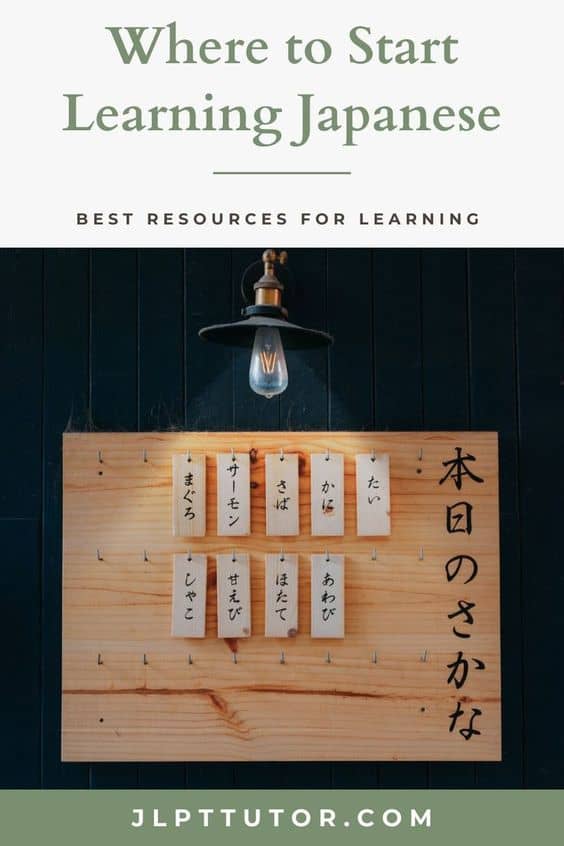If you are just starting to learn the Japanese language, congratulations! Starting out may seem confusing and complex for you, and it’s okay to feel overwhelmed, after all, almost all non-native Japanese language learners went through the same ordeal just like you since Japanese isn’t just a simple language to learn.
Memorizing Kanji isn’t the easiest thing to do when learning the Japanese language, but you can always get it done. Before moving on to Kanji, I believe that you must have learned and memorized the Japanese vocabulary as well as grammar because those are the basic foundation for Kanji and other aspects of the Japanese language. It’s a good thing that you are looking to learn and improve your Kanji. We’ll help you achieve as you read on.
What then is Kanji?
The Japanese language has three writing methods; Hiragana, Katakana, and Kanji. While katakana and hiragana covers for the Japanese syllabus, Kanji is a collection of symbols that represents words, have different meanings as well as pronunciations. There are about 50,000 to 85,000 kanji symbols out there, with about 2,136 of them commonly used on a daily basis.
Why should you learn Kanji?
Just because Kanji seems hard doesn’t mean you should abandon it completely. A lot of people have taken the high roads to learn it, seeking out the best way possible to keep them on track and motivated all through the learning period, which in the end paid off well. You can do it too. But if you are still wondering why you should learn Kanji, here are a few reasons.
- Kanji helps you to understand the context and give meaning to words. With it, you will be able to distinguish words that fit together and those that do not so that you don’t get mixed up or confused, trying to understand sentences.
- Being able to write Kanji correctly, joined with your Japanese language speaking and listening fluency will expose you to more opportunities than someone with just speaking and listening fluency.
- Once you can dedicate yourself to learning Kanji, it becomes relatively easy to read and understand sentences even without reading them in Hiragana.
- Finally, if you intend to move to Japan sometime, learning Kanji is a must for your day-to-day survival as most signs that will help you get around is written in Kanji.
Once you start to learn Kanji and you have memorized about 500 symbols, you will find that Kanji is an interesting and exciting part of the Japanese language, and learning it is quite easy.
How to Learn Kanji
Here are some steps that will help you learn Kanji effectively.
Ø Learn the radicals
These are the root of Kanji, and there are about 214 radicals. Although, not all 214 of the radicals are used in current Japanese Kanji but learning them will help you become familiar with the ones that are important. Every Kanji has one or more radicals, while some kanji themselves are radicals, and so, they work alone with their own meaning. Also, some radicals in their modified forms literally have no reasonable meaning and cannot be used alone unless with other radicals.
Kanji dictionaries are organized by radicals, making it the best tool for learning them.
Ø Ensure to practice and memorize the stroke order of each Kanji
What better way to memorize kanji stroke order than writing them over and over again? Learn the correct and specific way each stroke is written. It may seem like you can just do it your own way, but learning the correct order in which each stroke is written is very important because it will make it easier for someone to read what you write.
Ø Make spaced repetition your best friend
The more you come in contact with Kanji symbols or their radicals, the more familiar you become with them. Flashcards are perfect for spaced repetition. Therefore, you can create your own cards with words that may seem difficult for you to remember. You can either write down the words in Kanji on the back of the card and the meaning on the front or write down a complete sentence in Kanji with the meaning in your native language. This will help you remember your Kanji efficiently.
If you find out that you remember a particular kanji word or symbol right then wait for sometime before checking it out again.
Ø Try to read books, magazines or newspaper with kanji texts
This may seem strange and confusing in the beginning, but with time, you will get used to it. Memorizing Kanji is one thing, but if you don’t put it into practice, you may not be able to know how far you have gone on your learning journey. Memorizing can help you write them, but reading materials written in Kanji will give you a better understanding of how to use them, showing you the right context in which they fit perfectly.
Also, reading and memorizing isn’t enough if you don’t know how to correctly pronounce each Kanji. Therefore, it is advisable that you look out for magazines or books with audio options so that when you read them, you can also listen to how they are pronounced and learn from it.
Ø Read jouyou kanji
Jouyou are commonly used Kanji. Whether you are setting out to learn less than 3000 or all 50,000 to 85,000 of the kanji symbols, you should ensure to concentrate on the commonly used ones. These are the ones you may come in contact with every day; hence, learning them will help you make sense of some words and sentences you are exposed to on a daily basis.
In conclusion, learning kanji isn’t automatic. It’s a step-by-step process that you must be consciously invested in. This process depends on two factors: getting the necessary knowledge and regular practice using the acquired knowledge. In order to learn Kanji, you need to first learn the basics and work your way up from there. But first, be sure to find the right method that is most suitable for you. For instance, some people find it easier to learn Kanji with digital flashcards and other digital tools, while others prefer to employ non-digital methods in their learning process. Just ensure to stay true to the process, and in no time, you will become even better than what you expected.
Good luck!




